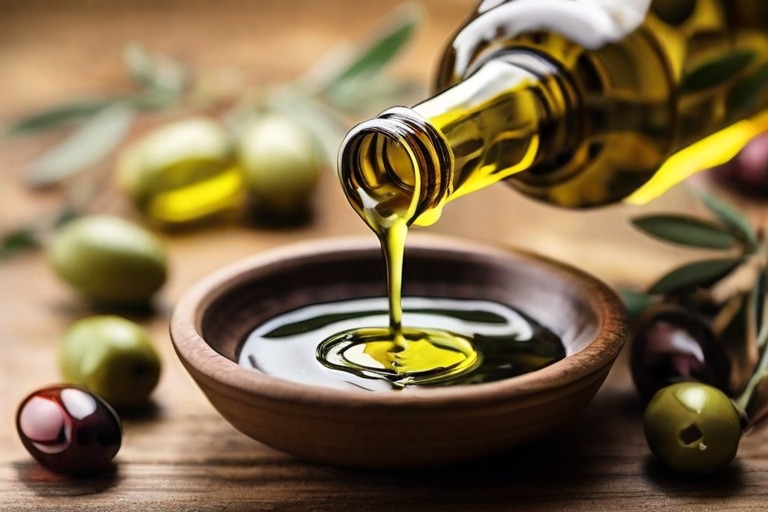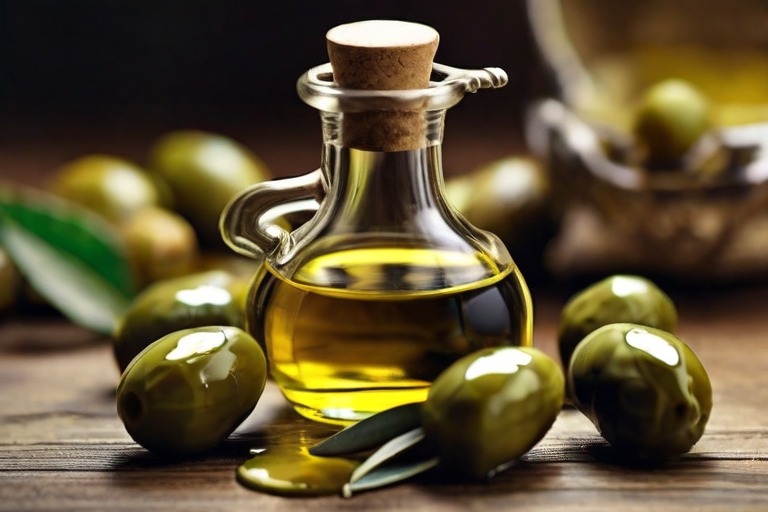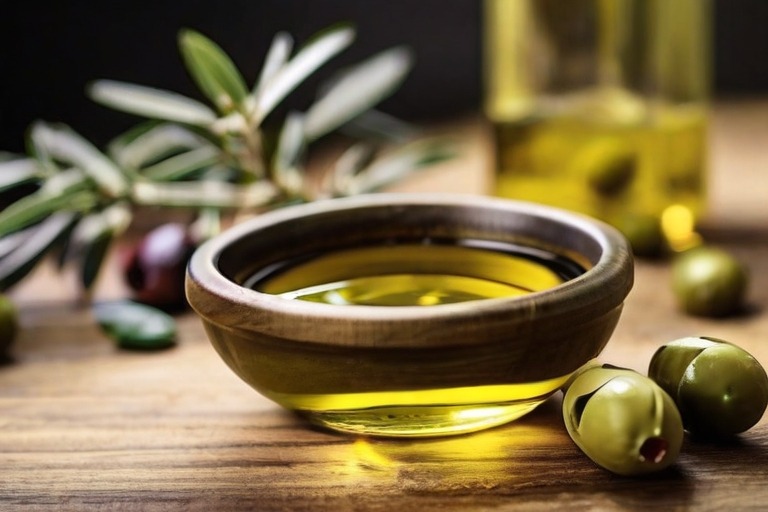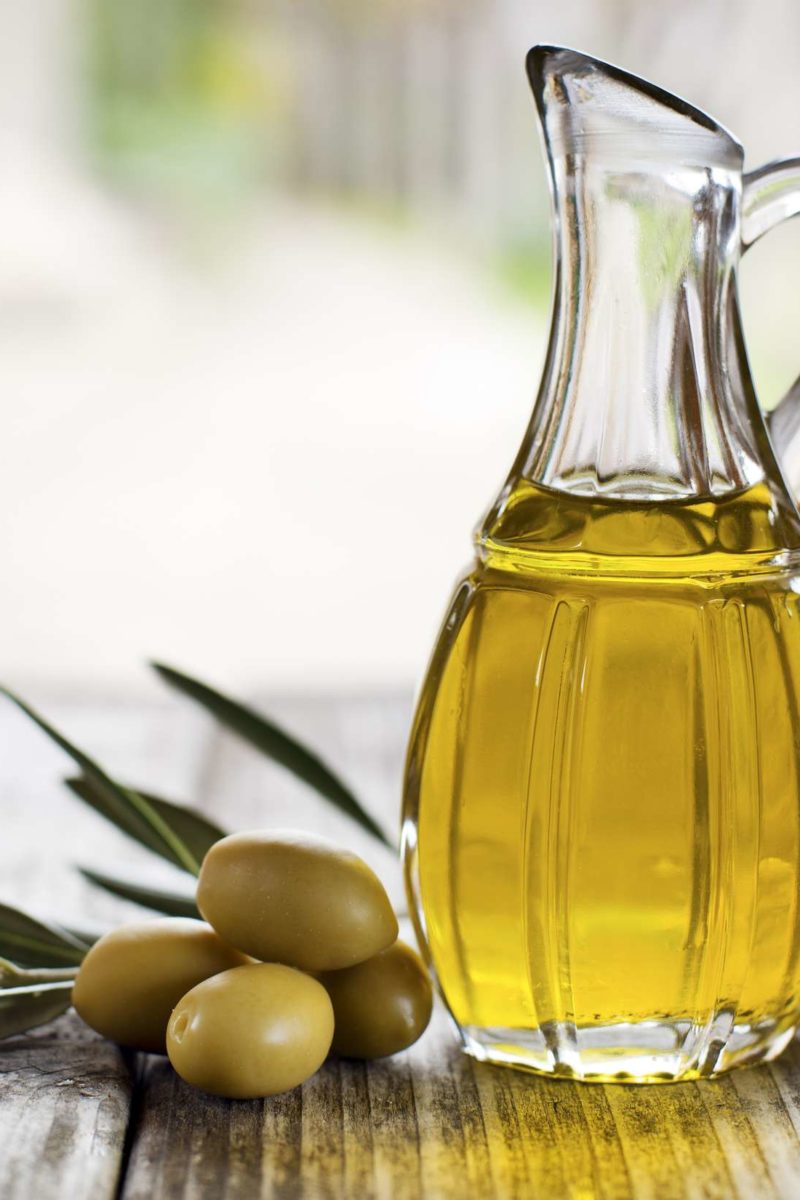Olive oil has long been touted for its numerous health benefits, and recent research suggests that it may also have antibacterial properties. With the rise of antibiotic resistance, scientists are increasingly turning to natural compounds to find alternative ways to fight bacterial infections. Olive oil is rich in polyphenols, which are known for their antioxidant and anti-inflammatory properties. These compounds have also been found to exhibit antibacterial activity against various strains of bacteria.
Dr. Natalie Azar Explains Why Extra Virgin Olive Oil May Be Your Friend | TODAY
Olive oil is a natural product that has been used for centuries. It is made from the fruit of the olive tree and has a variety of uses, including as a food and as a medicine. Olive oil has a number of health benefits, including the ability to fight bacteria.
There are several studies that have shown olive oil to be effective against bacteria. One study found that olive oil was able to kill Helicobacter pylori, a type of bacteria that can cause ulcers. Another study found that olive oil was effective against Staphylococcus aureus, a type of bacteria that can cause skin infections.
The antibacterial properties of olive oil are due to the presence of oleic acid, which is a type of fatty acid. Oleic acid is known to have antimicrobial activity and can kill bacteria by disrupting their cell membranes. Despite its antibacterial properties, olive oil should not be used as a replacement for hand washing or other hygiene measures.
It is important to remember that while olive oil can help to reduce the number of bacteria on your hands, it will not remove all bacteria completely.
Is Olive Oil Antifungal And Antibacterial
Yes, olive oil is both antifungal and antibacterial. It has been shown to be effective against Candida albicans, Aspergillus niger, and Escherichia coli. In addition, olive oil has also been shown to have antimicrobial activity against Staphylococcus aureus and Pseudomonas aeruginosa.
Is Olive Oil Antiviral
There is currently no scientific evidence to support the claim that olive oil has antiviral properties. However, some people believe that olive oil may help fight viral infections due to its high content of antioxidants. Antioxidants are substances that can neutralize harmful molecules called free radicals, which can damage cells and lead to inflammation.
While there is no proof that olive oil can directly kill viruses, some research suggests that it may help boost the immune system, which could, in turn, help the body fight off viral infections. For example, one study found that people who consumed a diet rich in antioxidants were less likely to develop respiratory tract infections than those who didn’t consume as many antioxidants.
If you’re interested in trying olive oil for its potential health benefits, be sure to choose a high-quality product from a reputable source. You can also add it to your diet by using it in place of other oils when cooking or adding it to salads and other dishes.

Benefits of Drinking Olive Oil in the Morning
When it comes to choosing a healthy cooking oil, olive oil is one of the best options out there. Not only is it packed with antioxidants and heart-healthy fatty acids, but new research suggests that drinking olive oil in the morning may have even more benefits.
A recent study published in the journal Nutrition found that when participants consumed two tablespoons of extra virgin olive oil before breakfast, they had lower levels of the hunger hormone ghrelin throughout the day.
Ghrelin is responsible for stimulating appetite, so keeping levels in check may help to control cravings and overeating.
In addition to curbing hunger, consuming olive oil in the morning was also found to improve blood sugar control. When researchers monitored participants’ blood sugar levels after they ate a high-carbohydrate meal, those who had drunk olive oil beforehand had significantly lower spikes in their blood sugar than those who didn’t consume any olive oil.
This effect is likely due to the healthy fats in olive oil slowing down digestion and absorption of carbohydrates.
So if you’re looking for a simple way to start your day on a healthier note, reach for some extra virgin olive oil and enjoy it with your morning meal!
Olive Oil Benefits
We all know that olive oil is good for us. But did you know that it can also help improve your health in a number of ways? Here are some of the top olive oil benefits:
1. Olive Oil Can Help Reduce Inflammation If you suffer from inflammation, whether it’s due to arthritis or another condition, olive oil can help reduce it. That’s because it contains a compound called oleocanthal, which has been shown to have anti-inflammatory properties.
2. Olive Oil May Help Protect Against Cancer Studies have shown that people who consume olive oil regularly have a lower risk of developing cancer. This may be due to the fact that olive oil contains antioxidants, which can help protect cells from damage and prevent the development of cancerous tumors.
3. Olive Oil Can Boost Heart Health Heart disease is a major problem in our society today. However, consuming olive oil may help reduce your risk of developing heart disease. That’s because it helps keep cholesterol levels in check and prevents the formation of plaque in the arteries.

Olive Oil Uses
There are many different olive oil uses that can be beneficial to your health. For example, olive oil can help to lower cholesterol levels and improve cardiovascular health. Additionally, olive oil contains anti-inflammatory properties that can help to reduce the risk of diseases such as cancer. Furthermore, olive oil can also help to improve cognitive function and memory.
Olive Oil for Body
One of the most popular ways to use olive oil is for your body. People have been using olive oil for body care since ancient times. It is an effective way to moisturize and protect your skin. There are many benefits to using olive oil on your body. Olive oil is a natural moisturizer. It can help to hydrate and soften your skin.
It is also rich in antioxidants, which can help to protect your skin from damage caused by free radicals. Olive oil can also help to reduce the appearance of wrinkles and fine lines. When applied to the skin, olive oil can help to soothe inflammation and irritation.
It can also help to relieve pain associated with conditions like arthritis and carpal tunnel syndrome. Olive oil has even been shown to promote healing after surgery or injury. If you’re looking for a natural way to improve the health of your skin, consider using olive oil for body care. You may be surprised at all the benefits this healthy fat has to offer!

Olive Oil for Skin
If you’re looking for a natural way to improve the appearance of your skin, olive oil may be a good option. This oil is packed with antioxidants and fatty acids that can help to hydrate and protect your skin. Additionally, olive oil can help to reduce the appearance of wrinkles and fine lines.
To use olive oil on your skin, simply massage it into clean, dry skin. You can also add a few drops to your bathwater or use it as a base for homemade facial masks. For best results, look for organic, cold-pressed olive oil that hasn’t been processed or refined.
Olive Oil Benefits for Male
When it comes to a man’s health, olive oil is one of the best things he can put into his body. That’s because this natural oil is packed with nutrients that are essential for good health, including monounsaturated fats, antioxidants, and anti-inflammatory compounds.
Here are some of the top olive oil benefits for men:
1. It Boosts Heart Health
Heart disease is the leading cause of death for men in the United States. But you can help lower your risk by incorporating olive oil into your diet.
This healthy fat helps reduce bad cholesterol levels while increasing good cholesterol levels. Additionally, olive oil can help prevent blood clots and keep your blood pressure in check. All of these effects work together to keep your heart healthy and functioning properly.
2. It Keeps Your Brain Sharp
As we age, our brains begin to decline in function. But studies have shown that those who consume olive oil on a regular basis are less likely to experience cognitive decline than those who don’t include it in their diets.
The fatty acids and antioxidants found in olive oil appear to be responsible for this brain-boosting effect. So if you want to keep your mind sharp as you age, make sure you get plenty of this healthy fat in your diet.

Credit: www.medicalnewstoday.com
Is Olive Oil Antibacterial on Skin?
Yes, olive oil is antibacterial on the skin. In fact, it has been shown to be effective against a variety of bacteria, including Staphylococcus aureus, Escherichia coli, and Pseudomonas aeruginosa. Additionally, olive oil has also been shown to be effective against Candida albicans, a type of yeast that can cause infections.
Is Olive Oil a Good Antibiotic?
There is some evidence to suggest that olive oil may have antibiotic properties. In a test-tube study, scientists found that olive oil was effective against several strains of bacteria, including Escherichia coli and Staphylococcus aureus (1).
Interestingly, the research showed that olive oil was more effective at destroying bacteria when it was combined with certain other substances, such as lemon juice or garlic.
This suggests that the combination of ingredients may be more potent than each one on its own.
While these findings are promising, more research is needed to determine whether olive oil is truly an effective antibiotic. Until then, it’s best to use traditional methods like soap and water to clean wounds and prevent infection.
Is Olive Oil Antibacterial And Antifungal?
There are many health benefits of olive oil, including its ability to fight bacteria and fungi. Olive oil contains a compound called oleocanthal, which has been shown to have antibacterial and antifungal properties. In addition, olive oil is a good source of antioxidants, which can help protect your cells from damage.
Does Olive Oil Prevent Infection?
There is some evidence to suggest that olive oil may help to prevent infection. One study found that olive oil was effective in inhibiting the growth of certain bacteria, including Staphylococcus aureus (S. aureus), which can cause skin infections. Another study found that a compound in olive oil called oleuropein could help to reduce the severity of respiratory tract infections. However, more research is needed to confirm these findings.
Frequently Asked Questions [FAQs]
Is olive oil naturally antibacterial?
Yes, olive oil is known to possess antibacterial properties due to the presence of compounds like phenolic compounds and fatty acids, which exert antimicrobial activity and have been shown to have bactericidal activity against various pathogens.
Can olive oil be used as an antioxidant?
Yes, olive oil contains antioxidant properties, particularly attributed to the presence of polyphenols and other antioxidant compounds. These compounds help in neutralizing free radicals in the body and have beneficial effects as part of a Mediterranean diet.
What are the antimicrobial properties of olive oil?
The antimicrobial properties of olive oil are related to the presence of bioactive compounds, such as phenolic compounds, that exhibit antimicrobial activity against foodborne pathogens and microbial agents. These properties have been studied in various olive oil extracts and products.
What are the anti-inflammatory properties of olive oil?
Olive oil is known for its anti-inflammatory properties, primarily associated with the presence of phenolic compounds and fatty acids. These components help in reducing inflammation and related therapeutic effects.
What are the best fashionable items made from olive oil?
While olive oil is not typically used to make fashionable items, it can be used as an ingredient in skincare products and cosmetics due to its moisturizing and antioxidant properties.
Does olive oil contain antimicrobial compounds?
Yes, olive oil contains antimicrobial compounds such as phenolic compounds and other bioactive agents that contribute to its antimicrobial and antifungal activity, making it effective against various pathogens and microbes.
Conclusion
Olive oil is known for its many health benefits, but did you know that it also has antibacterial properties? A new study has found that olive oil can kill bacteria, including those that cause food poisoning. The study, which was conducted by researchers at the University of Manchester, looked at the effects of olive oil on different types of bacteria.
They found that olive oil was effective against a range of bacteria, including E. coli and salmonella. While more research is needed to confirm these findings, this study shows that olive oil could be a useful tool in the fight against foodborne illnesses.
